VPN Encryption Standards Explained – AES-256 vs ChaCha20 (2025)
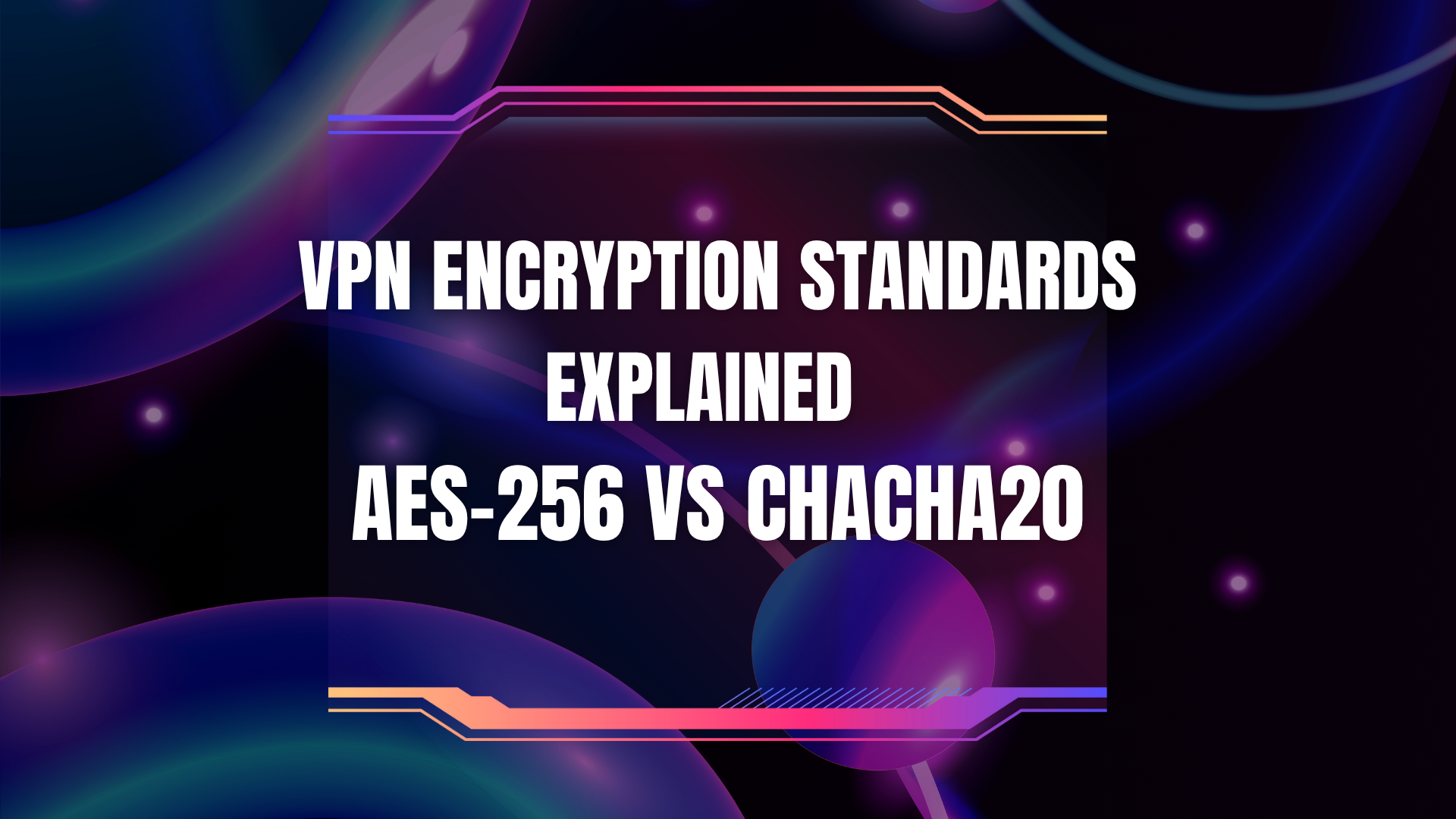
In 2025, AES-256 remains the gold standard for encrypting sensitive data efficiently and securely, particularly in regulated environments. Meanwhile, ChaCha20 has emerged as a powerful alternative that excels on mobile devices and systems without dedicated encryption hardware. Understanding these VPN encryption standards helps you choose the right security protocol for your privacy needs.
The encryption landscape has evolved dramatically since the late 1990s when outdated standards struggled to keep pace with growing security threats. Today’s VPN services deploy military-grade encryption algorithms that protect billions of daily connections worldwide.
What Makes VPN Encryption Critical in 2025?
VPN encryption transforms your readable internet traffic into scrambled code that cybercriminals cannot decipher. Without strong encryption, your passwords, banking details, and personal messages travel across networks in plain text.
Modern encryption standards use complex mathematical algorithms to secure your data. These algorithms create virtually unbreakable codes that would require centuries of computing power to crack.
The stakes have never been higher. Cyber threats continue evolving with sophisticated attack methods targeting unprotected connections.
Why Encryption Standards Matter
Your VPN’s encryption strength directly impacts your online security. Weak encryption creates vulnerabilities that attackers exploit to steal sensitive information.
AES-256 encryption is the most secure algorithm available today and is used extensively in government and military applications, as well as by businesses operating in highly regulated industries. This widespread adoption reflects its proven reliability against advanced threats.
The Evolution of Encryption Technology
Encryption technology advances to counter emerging security challenges. Earlier standards like DES became obsolete as computing power increased and attackers developed new cracking methods.
Modern algorithms like AES-256 and ChaCha20 represent decades of cryptographic research. They incorporate lessons learned from previous vulnerabilities and theoretical attacks.
Understanding AES-256 Encryption
AES-256 (Advanced Encryption Standard with 256-bit keys) dominates the VPN encryption landscape for good reason. This symmetric encryption algorithm converts your data into ciphertext using a 256-bit key.
The “256” refers to the key length – essentially the password used to encrypt and decrypt your data. Longer keys create exponentially more possible combinations that attackers must test.
How AES-256 Works
AES has 10 rounds for 128-bit keys, 12 rounds for 192-bit keys, and 14 rounds for 256-bit keys. Each round applies complex mathematical transformations to scramble your data further.
The algorithm processes data in fixed-size blocks of 128 bits. This block cipher approach enables efficient encryption of large data volumes while maintaining security.
![AES-256 encryption rounds with substitution and permutation layers]](https://vpnsuggest.com/wp-content/uploads/2025/10/image-1.png)
AES-256 Security Strength
Breaking AES-256 through brute force requires testing 2^256 possible key combinations. Even with the impact of quantum computers, AES-128, AES-192, and AES-256 will remain secure for decades to come.
The astronomical number of possible keys makes unauthorized decryption practically impossible with current and foreseeable technology. Security researchers have found no practical vulnerabilities in the AES algorithm itself.
Performance Characteristics
Stronger encryption methods, such as AES-256, require more processing power, which can slow down devices with limited resources, like smartphones or IoT devices. However, modern processors with AES-NI (AES New Instructions) hardware acceleration handle AES-256 efficiently.
Desktop computers and servers equipped with AES-NI process encrypted traffic with minimal performance impact. This hardware support makes AES-256 extremely fast on compatible systems.
Real-World Applications
Government agencies mandate AES-256 for protecting classified information. Financial institutions rely on it to secure transaction data and customer records.
Cloud storage providers use AES-256 to protect files at rest and in transit. This widespread implementation demonstrates industry confidence in the algorithm’s security.
ChaCha20 Encryption Explained
ChaCha20 represents a modern approach to VPN encryption designed for versatility across diverse computing environments. Developed by cryptographer Daniel J. Bernstein, this stream cipher offers compelling advantages over traditional block ciphers.
Unlike AES which encrypts data in fixed blocks, ChaCha20 processes information as a continuous stream. This fundamental difference influences performance characteristics and implementation requirements.
ChaCha20 Architecture
The algorithm generates a pseudorandom keystream from your encryption key and a unique nonce (number used once). It then XORs this keystream with your plaintext to produce ciphertext.
ChaCha20 operates through 20 rounds of quarter-round operations on a 4×4 matrix of 32-bit words. These operations include addition, rotation, and XOR functions that provide cryptographic security.
Security Features
ChaCha20 has a higher security margin than AES, and software AES implementations can be susceptible to cache-timing attacks. The algorithm’s design resists timing attacks that target software implementations of other ciphers.
Security researchers have scrutinized ChaCha20 extensively without discovering practical vulnerabilities. Its 256-bit key size matches AES-256 in theoretical security strength.
Performance Advantages
ChaCha20 is approximately 3 times faster than pure software AES on mobile devices. This performance edge stems from its optimization for software implementation on general-purpose processors.
ChaCha20-Poly1305 usually offers better performance than the more prevalent AES-GCM algorithm, except on systems where the CPU(s) have the AES-NI instruction set extension. Mobile devices, embedded systems, and older computers benefit most from ChaCha20’s efficiency.
Mobile Optimization
Smartphones and tablets typically lack dedicated AES hardware acceleration. ChaCha20’s software-friendly design delivers faster encryption on these devices.
Battery life improves when encryption requires less processing power. ChaCha20’s efficiency helps mobile users maintain privacy without draining their batteries rapidly.
AES-256 vs ChaCha20: Direct Comparison
Choosing between AES-256 and ChaCha20 depends on your specific use case and hardware configuration. Both algorithms provide military-grade security with different performance characteristics.
Security Comparison
Both algorithms offer equivalent practical security with 256-bit keys. No known attacks can break either cipher within reasonable timeframes.
AES benefits from over 20 years of extensive analysis by the global cryptographic community. ChaCha20 has undergone rigorous scrutiny and earned trust from security experts.
| Feature | AES-256 | ChaCha20 |
|---|---|---|
| Key Size | 256 bits | 256 bits |
| Cipher Type | Block cipher (128-bit blocks) | Stream cipher |
| Algorithm Rounds | 14 rounds | 20 rounds |
| Hardware Acceleration | AES-NI on modern CPUs | Not required |
| Quantum Resistance | Post-quantum secure | Post-quantum secure |
| Known Vulnerabilities | None (theoretical attacks only) | None |
Performance Metrics
Generally speaking, ChaCha20 is faster than AES on platforms that do not have dedicated hardware support for AES, such as mobile devices or embedded systems. However, AES can outperform ChaCha20 on platforms that have AES-NI or similar features, such as modern desktops.
Hardware makes the crucial difference. Desktop processors with AES-NI handle AES-256 extremely efficiently through dedicated silicon.
Platform Considerations
Your device type determines optimal encryption choice. Desktop computers and modern servers favor AES-256 with hardware acceleration.
Mobile devices, IoT gadgets, and embedded systems perform better with ChaCha20. The algorithm’s software-friendly design eliminates hardware dependency.
Implementation Complexity
AES requires careful implementation to avoid side-channel attacks in software. Constant-time implementations prevent timing-based information leakage.
ChaCha20’s design naturally resists timing attacks. The algorithm’s operations proceed at constant speed regardless of input data.
![Performance benchmark comparison chart showing AES-256 vs ChaCha20 across different device types]](https://vpnsuggest.com/wp-content/uploads/2025/10/Performance-benchmark-comparison-chart-showing-AES-256-vs-ChaCha20-across-different-device-types.png)
Which VPN Encryption Standard Should You Choose?
Your ideal VPN encryption standard depends on three factors: device type, performance requirements, and compatibility needs. Both AES-256 and ChaCha20 provide excellent security for protecting your online privacy.
Desktop and Laptop Users
Modern desktop computers equipped with AES-NI instructions should use AES-256 encryption. Hardware acceleration delivers maximum performance with minimal CPU overhead.
Check your processor specifications to confirm AES-NI support. Intel processors from Sandy Bridge (2011) onwards include this feature.
Mobile Device Users
Smartphone and tablet users benefit from ChaCha20’s optimized mobile performance. Block ciphers are generally fast in hardware and somewhat slow in software, while stream ciphers often have fast software implementations.
Battery conservation becomes crucial on mobile devices. ChaCha20’s efficiency helps maintain longer usage between charges.
IoT and Embedded Systems
Internet of Things devices and embedded systems rarely include dedicated encryption hardware. ChaCha20 provides strong security without requiring special processor features.
Resource-constrained devices appreciate ChaCha20’s lower computational requirements. The algorithm delivers security without overwhelming limited processing capabilities.
VPN Provider Recommendations
Leading VPN services support both encryption standards and automatically select the optimal option for your device. This automatic negotiation ensures best performance while maintaining security.
Check your VPN settings to verify which encryption protocol is active. Most providers display this information in connection details or settings menus.
Common VPN Encryption Myths Debunked
Misconceptions about VPN encryption standards can lead to poor security decisions. Understanding the facts helps you make informed choices about protecting your privacy.
Myth: Longer Keys Always Mean Better Security
While longer keys generally improve security, both AES-256 and ChaCha20 already provide more than adequate protection. The practical security difference between 128-bit and 256-bit keys matters less than implementation quality.
Algorithm design and implementation practices impact security more than raw key length beyond certain thresholds. Both standards exceed necessary security margins for civilian use.
Myth: Military-Grade Means Unbreakable
The term “military-grade encryption” describes algorithms approved for protecting classified information. While highly secure, no encryption is theoretically unbreakable.
However, breaking modern encryption requires computational resources far beyond current capabilities. The practical security remains excellent for protecting personal and business data.
Myth: VPN Encryption Slows Connections Significantly
Modern encryption algorithms and hardware acceleration minimize performance impact. AES-256 is considered a fast, efficient way to keep data secure on systems with proper hardware support.
Network latency and VPN server distance affect connection speed more than encryption overhead. Quality VPN providers optimize their infrastructure to minimize slowdowns.
Myth: One Encryption Standard Rules All
No single encryption algorithm excels in every scenario. AES-256 dominates hardware-accelerated environments while ChaCha20 excels on mobile and embedded devices.
The best encryption choice adapts to your specific use case. Flexibility in supporting multiple standards indicates a quality VPN service.
Advanced Encryption Features in Modern VPNs
Beyond choosing between AES-256 and ChaCha20, modern VPN services implement additional security features that enhance overall protection. These complementary technologies work alongside encryption to secure your connection.
Perfect Forward Secrecy
Perfect Forward Secrecy (PFS) generates unique session keys for each connection. Even if someone compromises your main encryption key, they cannot decrypt past traffic.
This feature prevents retroactive decryption of captured data. Security experts consider PFS essential for comprehensive privacy protection.
Authenticated Encryption
Modern VPN protocols combine encryption with authentication to verify data integrity. Poly1305 authentication pairs with ChaCha20 while GCM (Galois/Counter Mode) works with AES.
Authentication prevents attackers from modifying encrypted data without detection. This protection guards against man-in-the-middle attacks and tampering.
Key Exchange Protocols
Secure key exchange establishes encryption keys between your device and VPN server. Protocols like Elliptic Curve Diffie-Hellman (ECDH) enable secure key agreement over untrusted networks.
Strong key exchange prevents eavesdroppers from capturing encryption keys. This initial security step protects the entire subsequent connection.
Cipher Suites
VPN protocols bundle encryption algorithms, authentication methods, and key exchange mechanisms into cipher suites. Your VPN client negotiates the strongest mutually supported suite with the server.
Modern cipher suites prioritize forward secrecy and authenticated encryption. Legacy suites with known vulnerabilities should remain disabled in VPN configurations.
![Flowchart showing complete VPN encryption process from connection to data transmission]](https://vpnsuggest.com/wp-content/uploads/2025/10/Flowchart-showing-complete-VPN-encryption-process-from-connection-to-data-transmission.png)
Future of VPN Encryption Standards
The encryption landscape continues evolving as quantum computing advances and new attack methods emerge. Understanding upcoming developments helps you prepare for future security requirements.
Quantum Computing Threats
Quantum computers theoretically threaten certain encryption schemes through algorithms like Shor’s algorithm. However, even with the impact of quantum computers, AES-128, AES-192, and AES-256 will remain secure for decades to come.
Symmetric encryption like AES and ChaCha20 maintains strong resistance to quantum attacks. Asymmetric key exchange protocols face greater vulnerability and require updates.
Post-Quantum Cryptography
Researchers develop quantum-resistant key exchange methods to replace potentially vulnerable protocols. The National Institute of Standards and Technology (NIST) standardizes post-quantum cryptographic algorithms.
VPN providers will gradually implement these new standards. The transition will occur transparently without requiring user intervention.
Emerging Encryption Algorithms
While AES-256 and ChaCha20 dominate current VPN encryption, research continues on next-generation algorithms. These future standards aim to improve efficiency while maintaining or enhancing security.
The cryptographic community thoroughly vets new algorithms before widespread adoption. This careful evaluation process ensures reliability and security.
Hardware Evolution
Future processors will likely include ChaCha20 hardware acceleration alongside existing AES-NI support. This development would eliminate the performance trade-offs between algorithms.
Specialized security processors may offload encryption entirely from main CPUs. Such dedicated hardware could enable stronger encryption without performance penalties.
Implementing Strong VPN Encryption
Selecting appropriate VPN encryption standards requires understanding your security needs and device capabilities. Follow these practical guidelines to optimize your privacy protection.
Choosing a VPN Provider
Reputable VPN services transparently disclose their encryption implementations. Look for providers supporting both AES-256 and ChaCha20 with automatic optimization.
Avoid VPN services using outdated encryption like PPTP or weak cipher configurations. Security audits from independent firms validate provider security claims.
Configuring Encryption Settings
Most VPN clients automatically select optimal encryption for your device. Advanced users can manually specify encryption preferences in settings.
Ensure your VPN uses 256-bit keys rather than shorter alternatives. Check that perfect forward secrecy remains enabled in protocol settings.
Verifying Active Encryption
Monitor your VPN connection details to confirm active encryption. Most clients display the current cipher suite and protocol version.
Third-party tools can analyze VPN traffic to verify encryption implementation. However, properly encrypted traffic should appear as random data to external observers.
Regular Security Updates
Keep your VPN client updated to receive security patches and protocol improvements. Outdated software may contain vulnerabilities that compromise encryption effectiveness.
Enable automatic updates when available to ensure continuous protection. Review update changelogs to stay informed about security enhancements.
Troubleshooting VPN Encryption Issues
Even robust VPN encryption can encounter problems that affect connection quality or security. Recognizing and resolving these issues maintains optimal protection.
Connection Speed Problems
Excessive slowdowns may indicate CPU struggles with encryption overhead. Switch from AES-256 to ChaCha20 on older devices lacking hardware acceleration.
Server distance and congestion affect speed more than encryption choice. Try connecting to less-crowded servers closer to your physical location.
Compatibility Conflicts
Some networks block VPN protocols or detect encrypted traffic. Switching between OpenVPN, WireGuard, or IKEv2 protocols may resolve connectivity issues.
Obfuscation features disguise VPN traffic as regular HTTPS connections. This capability helps bypass restrictive firewalls while maintaining encryption.
Device-Specific Challenges
Mobile devices may disconnect frequently when using aggressive encryption. Adjust power-saving settings to prevent the system from terminating VPN connections.
Ensure your device meets minimum specifications for chosen encryption standards. Extremely old hardware may struggle with modern security requirements.
Encryption Verification Failures
If connection verification fails, your device clock may be incorrect. Encryption certificate validation depends on accurate time synchronization.
Firewall or antivirus software sometimes interferes with VPN encryption. Temporarily disable security software to identify conflicting applications.
Conclusion
VPN encryption standards form the foundation of online privacy protection in 2025. AES-256 and ChaCha20 both deliver military-grade security with different performance characteristics suited to specific use cases.
Desktop users with modern processors benefit from AES-256’s hardware acceleration. Mobile device users experience better performance and battery life with ChaCha20’s optimized software implementation.
The choice between encryption standards matters less than using a reputable VPN service that properly implements either algorithm. Both standards provide more than adequate security for protecting personal data against current and foreseeable threats.
As quantum computing advances and new security challenges emerge, the cryptographic community continues developing enhanced protection methods. However, current encryption standards will remain secure for many years, giving users confidence in their privacy protection.
Select a VPN that supports modern encryption standards, keep your software updated, and verify your connection uses strong cipher suites. These practices ensure comprehensive protection for your online activities.
FAQ
Q: Is AES-256 or ChaCha20 more secure for VPN connections?
A: Both provide equivalent practical security with 256-bit keys, though ChaCha20 offers better performance on mobile devices without hardware acceleration.
Q: Can quantum computers break AES-256 and ChaCha20 encryption?
A: Both algorithms remain secure against quantum attacks for decades, though key exchange protocols may require post-quantum alternatives.
Q: Why do some VPNs use ChaCha20 instead of AES-256?
A: ChaCha20 delivers superior performance on smartphones, tablets, and devices lacking dedicated AES hardware acceleration instructions.
Q: Does stronger VPN encryption significantly slow my internet speed?
A: Modern encryption has minimal impact on properly equipped devices, with network latency and server location affecting speed more than encryption overhead.
Q: Should I manually select my VPN encryption standard?
A: Most users benefit from automatic selection, though advanced users on specific hardware can optimize by choosing AES-256 for desktop or ChaCha20 for mobile.
Loading newsletter form...


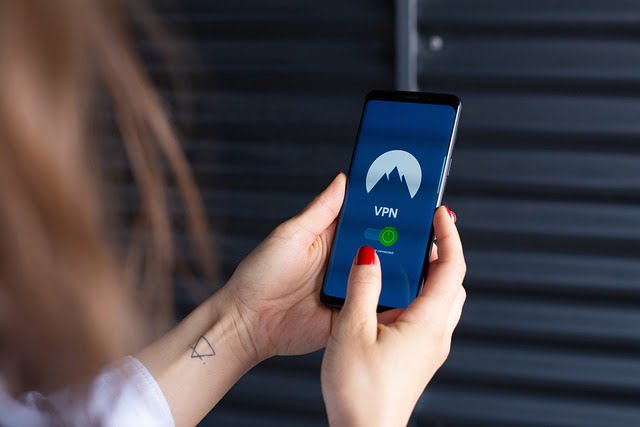
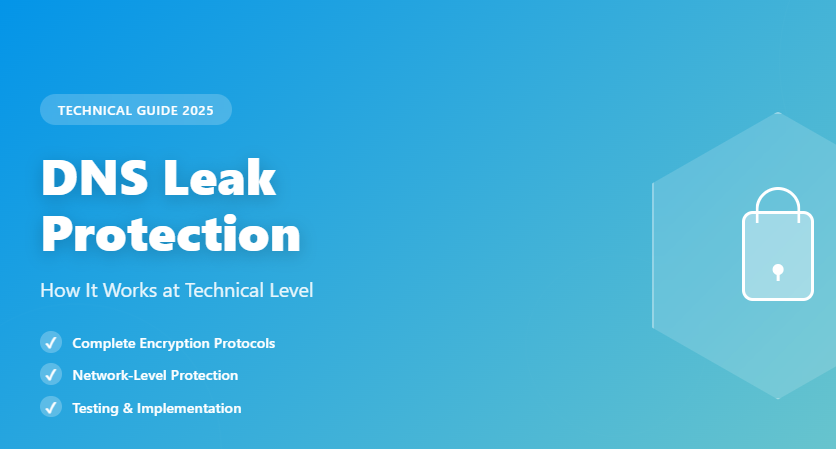
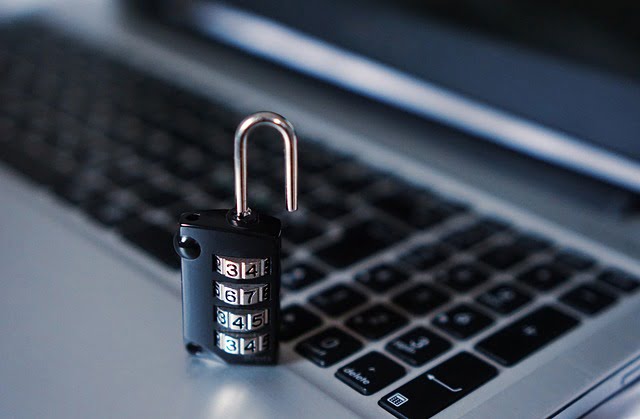
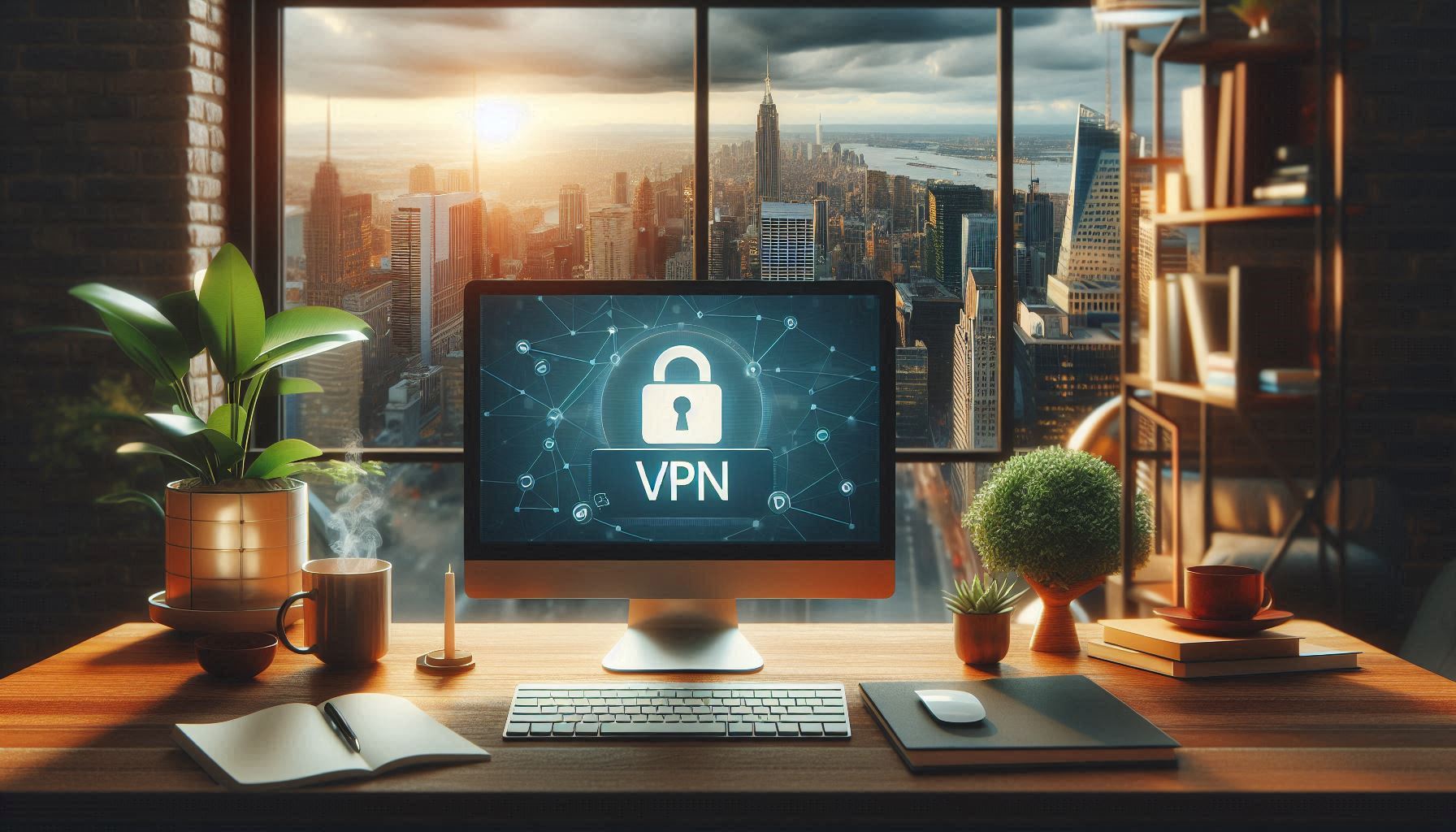
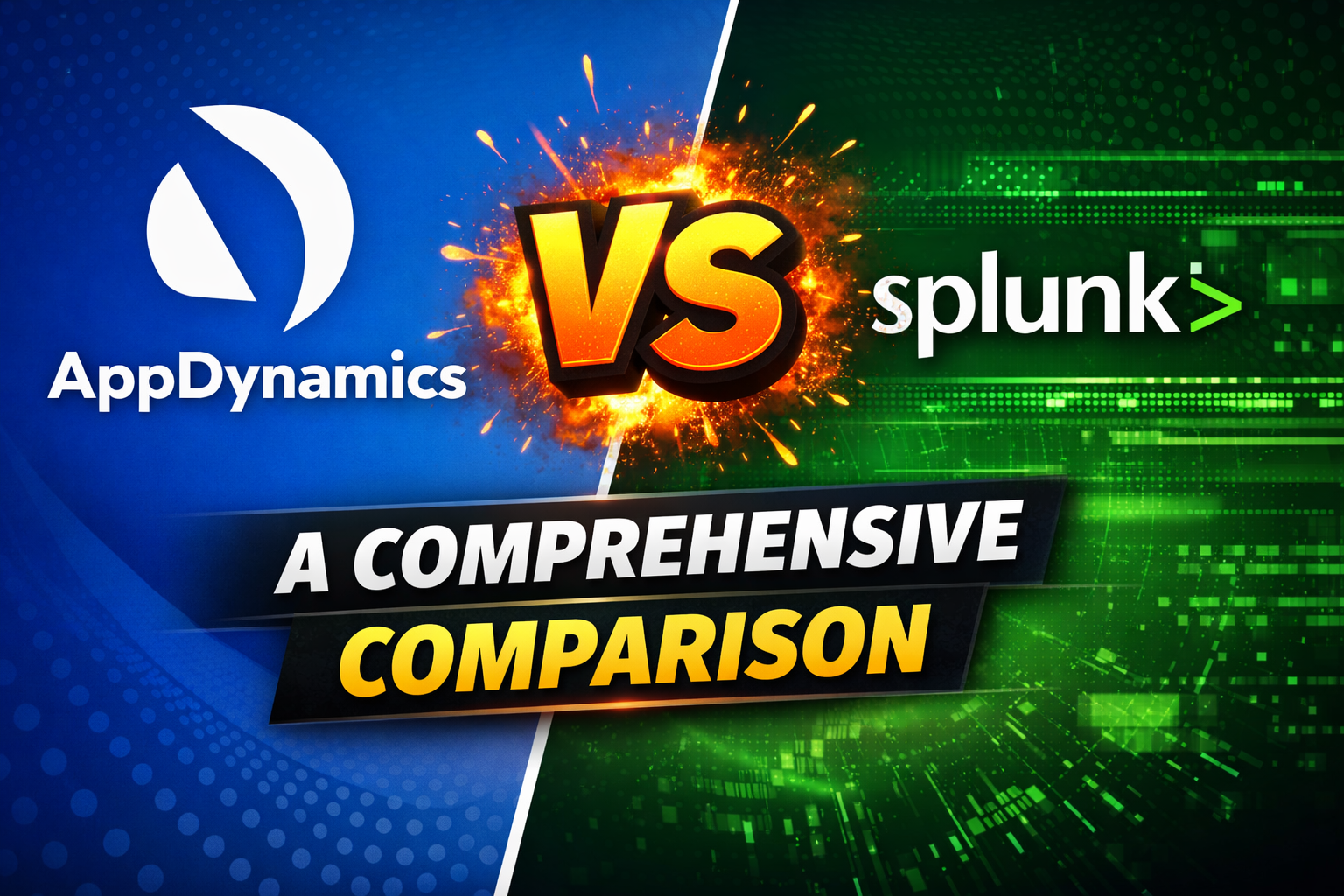
3 Comments